Diversity, Equity + Inclusion
Bora is committed to upholding diversity, equity and inclusion in all areas of our practice. These values are integral to our culture, guiding our approach to recruitment and hiring, just and equitable design, team member selection, jobsite culture, and internal firm initiatives.
We are determined to challenge the systemic injustices of our historically homogeneous profession, recognizing that we must use our public platform to advocate for greater diversity in the industry and more equitable communities and practices. Our Justice + Equity in Architecture commitments articulate specific actions we are taking toward equity in our practice.
Advancing MBE/WBE Firms
Our firm is committed to the advancement of professionals from underrepresented groups in the architecture, design, and engineering fields. Regionally and nationally we actively seek to include emerging, small, disadvantaged, minority-owned, and/or women-owned consulting firms for our projects. We enjoy long, successful relationships with many certified firms which we frequently choose for projects regardless of a client’s equity or diversity commitments.
Mentorship is a central part of this commitment. When it is challenging to find certified consultants with the capacity or experience to take on larger projects, we ask non-certified consultants to partner with these smaller certified firms. By parceling out portions of the work we achieve higher rates of participation while creating mentorship and growth opportunities for the smaller or emerging firms.
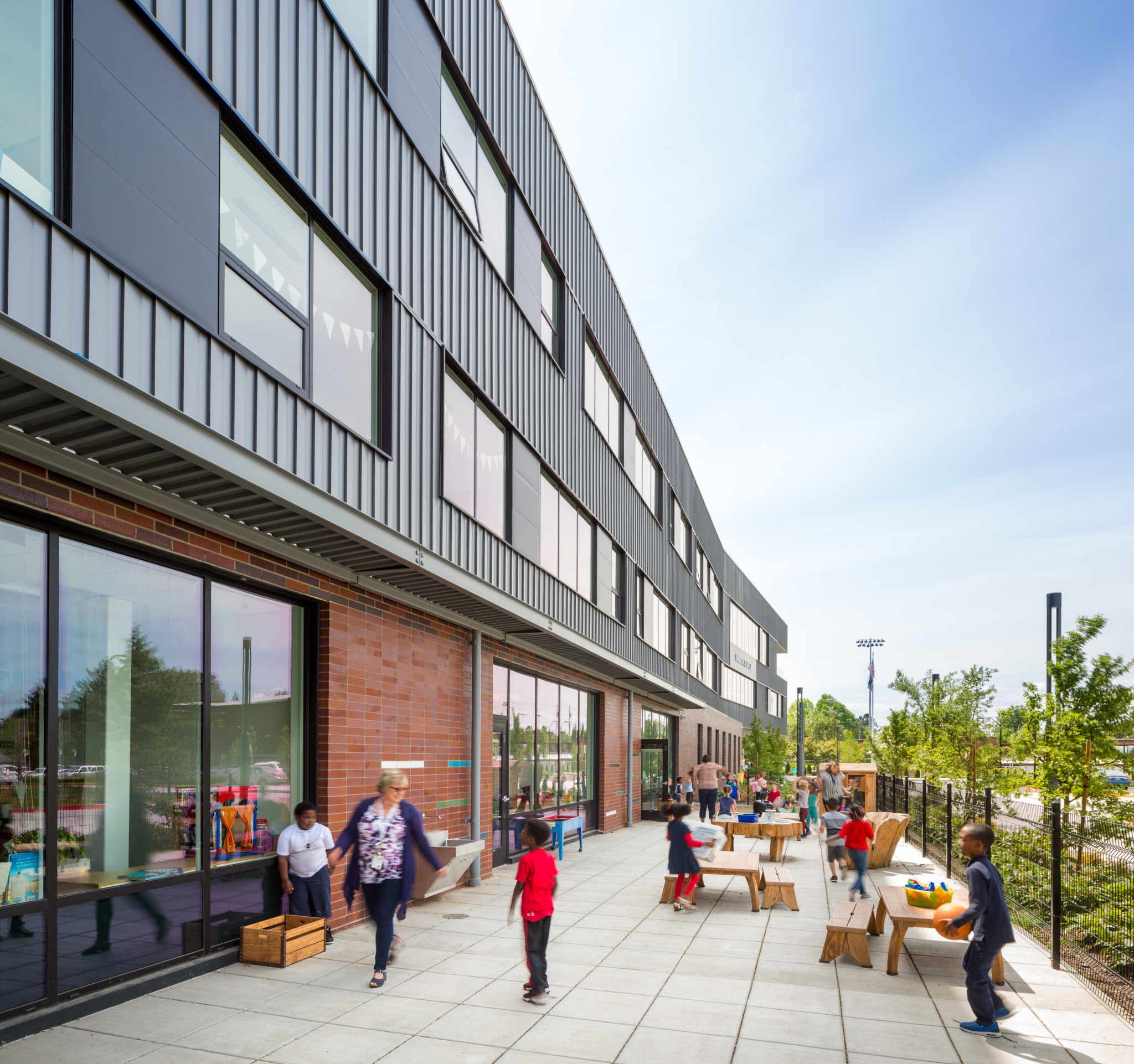
Our Plan for MBE/WBE Participation
We work with our clients to thoughtfully and strategically select team members and integrate mentoring for those disciplines that are most critical, employing these steps:
(1) Review. Review client’s equity goals to ensure we are working within any pre-existing agreements.
(2) Promote. Proactively promote the opportunity to participate in the project by attending local industry networking and peer mentoring groups.
(3) Connect. Bring our own MBE/WBE network to client consideration so that together we can connect with qualified firms in the various disciplines necessary to serve the project.
(4) Challenge. Encourage any client-preferred non-MBE/WBE consultants to engage with and mentor a certified smaller or emerging firm within the same discipline, allocating meaningful work to the mentee partner.
(5) Thrive. Provide training and mentorship through team building, shared trainings, partnering and specialty programs.
Equity Along the Supply Chain
Bora’s commitment to equity extends beyond the project site, encompassing those who play an important role in the design and construction process, but who all too often remain invisible. This includes the individuals who work to extract, manufacture, and transport the building materials comprising the completed project, as well as those who are impacted by the fuels used to power it. Our choice in intentionally procuring certain products or materials over others gives us the ability to support businesses that align with our social and environmental values. For example:
- We are committed to avoiding products containing PVC because of the health risks intrinsic to those who manufacture this chemical.
- We seek to avoid natural gas as a building fuel due to the harm done to the land during its extraction as well as the negative air quality impacts from its combustion—both of which disproportionately affect underserved communities.
- We strive to support product manufacturers who provide living wages and safe working conditions for everyone involved.
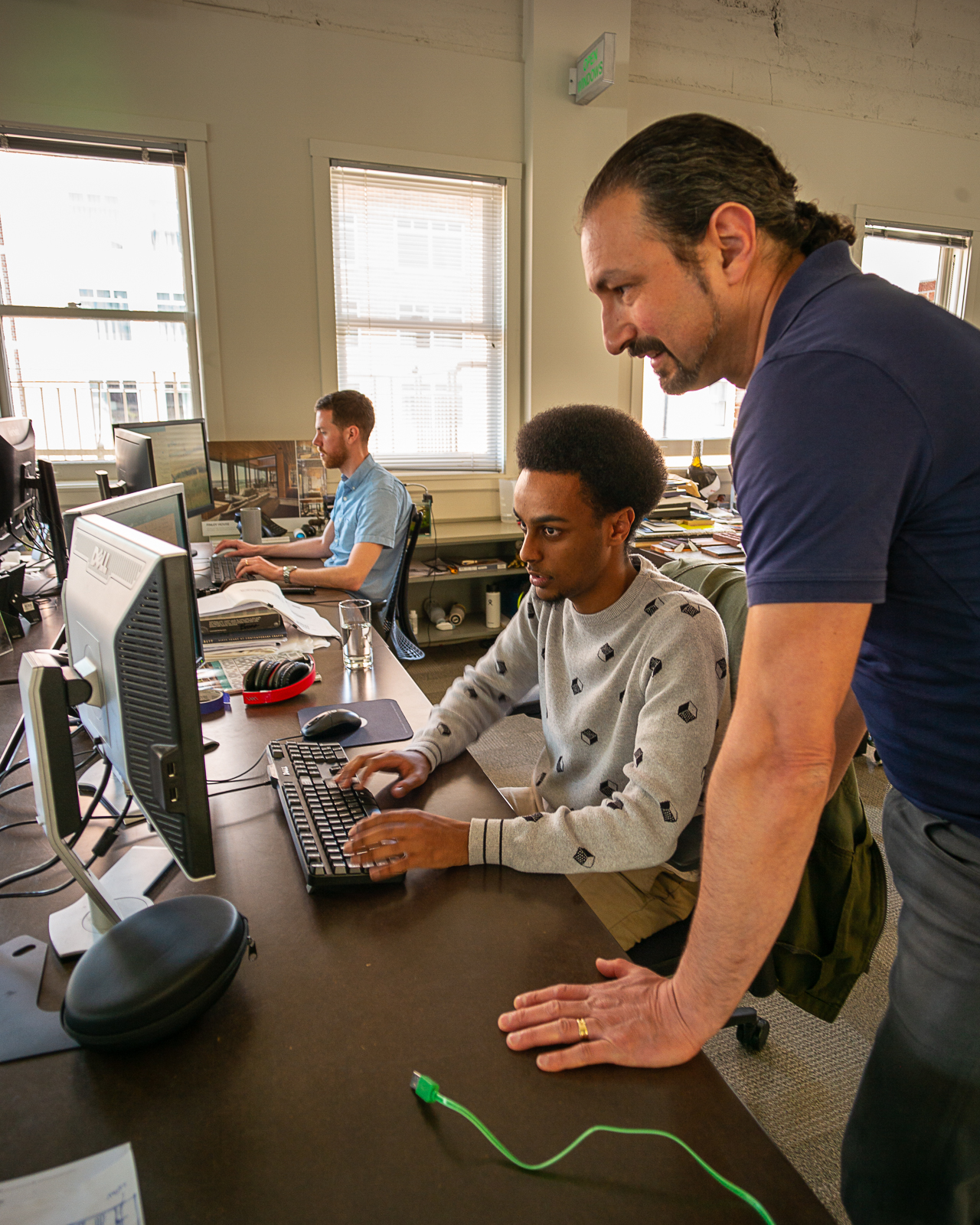
Equitable Business Practices
Bora believes that equity work is essential to change the workplace reflect the culture to which we aspire. It is our mission and policy to provide equitable opportunities in all aspects of employment, including recruitment, hiring, promotion, training, compensation, benefits, and working conditions.
Creating a pipeline of diverse talent in the industry. We recognize that leaders who are diverse in gender and racial identity can have a transformative impact as mentors and role models. Bora has undertaken several strategies to provide this mentorship and increase minority and women architects, engineers, and design professionals, including:
- De La Salle North Catholic High School Corporate Work Study. In this ongoing 7-year partnership, Bora has hosted 11 De La Salle interns, all from Portland’s Black and Brown communities. A typical intern meets mentors in a variety of project roles, gains hands-on experience with fabrication, and helps develop project materials.
- Young Black Professionals Workforce Housing Apprenticeship. Bora’s Young Black Professionals (YBP) Workforce Housing seeks to create opportunities for Black architecture/engineering/construction professionals through housing and a three-year apprenticeship program where they can be mentored, develop leadership skills, and work for a local AEC firm to help ensure a pathway for success.
- Immigrant & Refugee Community Organization + Portland Public Schools Partnership. We offer a regular summer internship to a local high school student.
- College-Level Summer Internship. Paid interns from under-represented communities see all phases of architectural design and pursue a personally defined project that can strengthen their professional portfolio. Acknowledging the financial barriers of relocation, a moving stipend is included.
- Two Full Scholarships for Minority Students to attend the University of Oregon College of Design.
- Hip Hop Architecture Internship. In 2020, Bora hosted a middle-school intern from Jackson, MS. The intern worked with us to develop his vision for a community center for his own local Black community. He is now pursuing Architecture as his career track.
Equitable Hiring. Bora has a structured hiring process to mitigate bias by consistently looking for desired skills and values in candidates. The questions asked value lived experiences as part of the knowledge candidates bring and recognize that not all candidates will have been afforded the same opportunities. Interviewers seek potential and not just past experience.
In recruiting, Bora has a list of job boards for posting opportunities to a broad range of communities, including candidates of color, LGBTQIA+, and individuals with disabilities. Bora is building its relationship with HBCUs and is part of the President’s Circle for the National Organization of Minority Architects (NOMA), having sponsored six employees to join the new NOMA PDX Chapter. We do not ask candidates for their criminal history during the hiring process.
In an industry that is 75% male, Bora is over 50% women, with strong representation at every level of the firm. 11% of our staff across all departments of our practice are BIPOC.
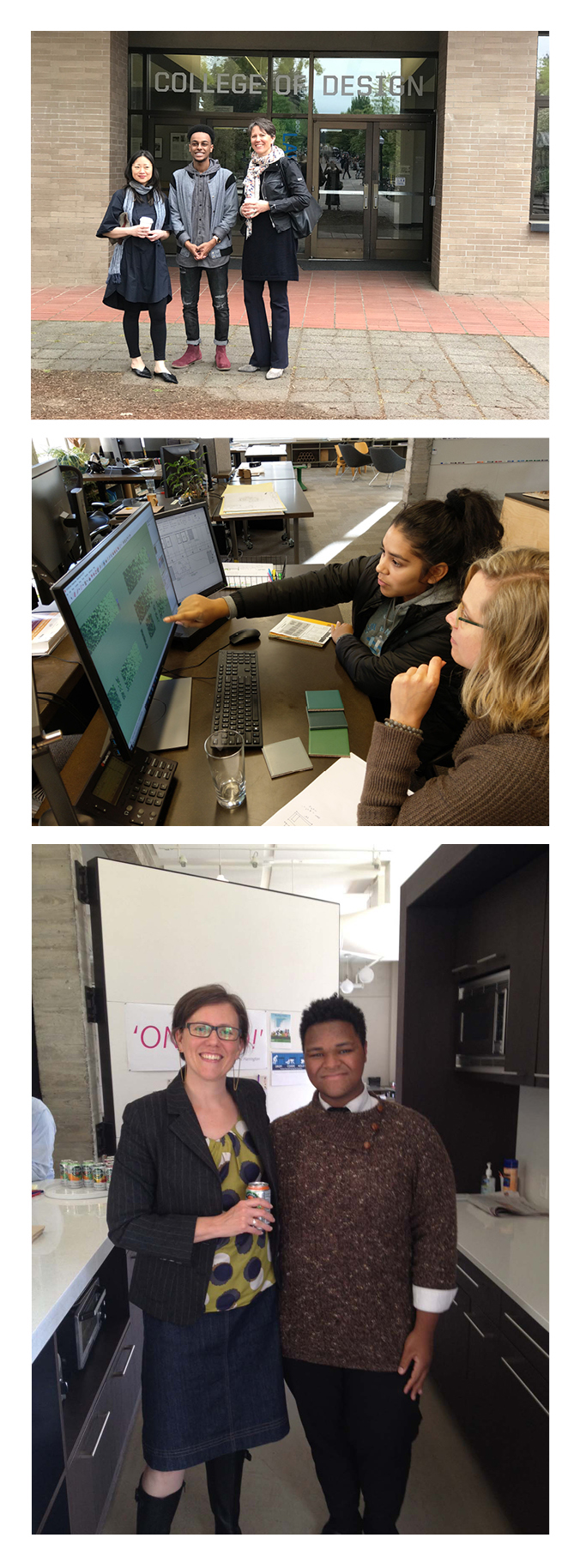
Retention and Employee Engagement. Bora gives employees a voice through initiatives that inform each aspect of the practice. In 2019-2021, this included working groups to look at how we design together, how we recruit talent, our firm and how we engage our culture, brand and the process supporting our work. A monthly equity-focused lunch discussion forum and All-Staff meetings provide touch points to gain insights from each other. Surveys are used to collect anonymous input and check how things are going. In addition, Affinity Groups provide a space for underrepresented communities to talk about issues that impact them and have a shared voice within the firm.
In 2019, Bora established an Equity Team and began implementing full staff training workshops and conversations, focusing on issues of race, implicit bias, gender identity/expression, sexism/misogyny, intent and impact, power, bullying, representation, and intersectionality. Employees practice engaging in difficult conversations around systems of oppression, developing an understanding of how these systems impact Bora as a company and as a collection of individuals.
Community Outreach. Having committed to apply Critical Race Theory (CRT) to the design of all its projects, Bora continues to expand training through office knowledge sharing and by inviting Client, Architect, and Consultant project teams to train together and gain a shared lens for design. 50% of our staff are trained in CRT, and 66% in Design Justice.
While CRT asks us to find processes specific to each project, we also embrace the following strategies:
- Meet people in their own spaces to reduce the unfamiliar and embrace collaboration.
- Listen, translate, confirm. Listen to needs and ideas; translate ideas into architecture; and confirm we heard correctly with our design to avoid assumptions based on our own socio-economic perspectives.
- Community partnerships. Value the work communities are already doing on the ground. When possible, work with partners to allow them to bring their own communities to the design table and lead the dialogue.
- Affinity spaces. Create culturally specific opportunities for participants to propose and react to design.
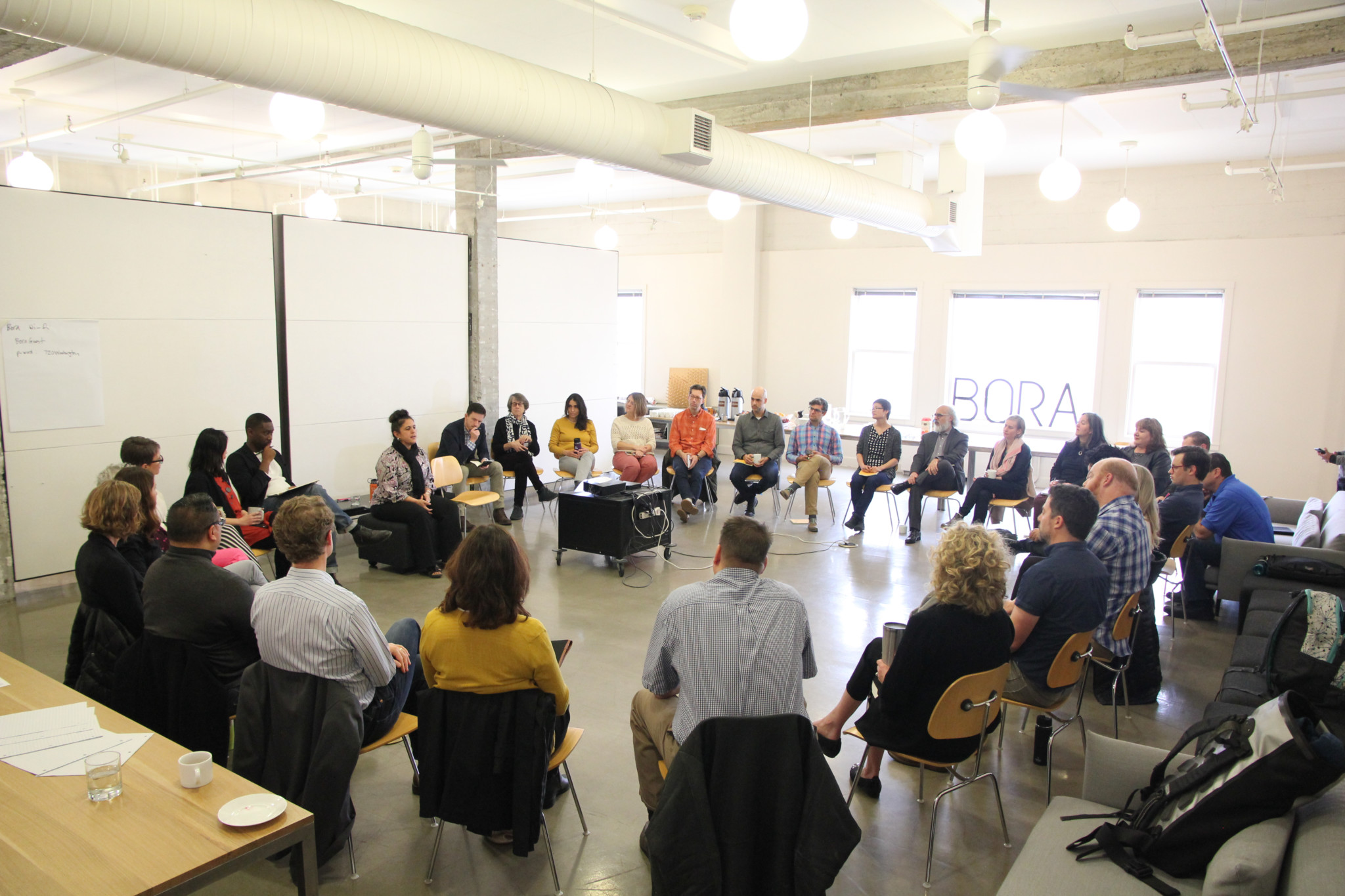
Corporate Social Responsibility
We uphold transparency regarding company structure, policies and initiatives. The ethical treatment of our employees is paramount and the positive impact we make as a business in our community–through our purchases and our affinity with companies who share our values–is significant.
JUST Label. In 2017 Bora became a proud recipient of the JUST label, a program run by the International Living Future Institute that recognizes commitment to transparent reporting, social justice, and equity in our practice and in relationship to the community.
A Safe, Inclusive Workplace. While Bora has long maintained strict protocols regarding discrimination, retaliation and harassment by our employees, we also provide training for all staff in equity, diversity and inclusion. In 2019 we engaged EqualityWorks, NW to bring days-long workshops in which staff took a deep dive into these topics, resulting in a series of key changes in our workplace practices. Our work and education is ongoing, and we are continue to bring this thinking to our projects. We have developed project-specific DEI agreements to be read and signed by all parties that codify a zero tolerance policy. We also have implemented The Green Dot Program, a violence prevention strategy seeking to safely engage bystanders in preventing violence in the workplace.
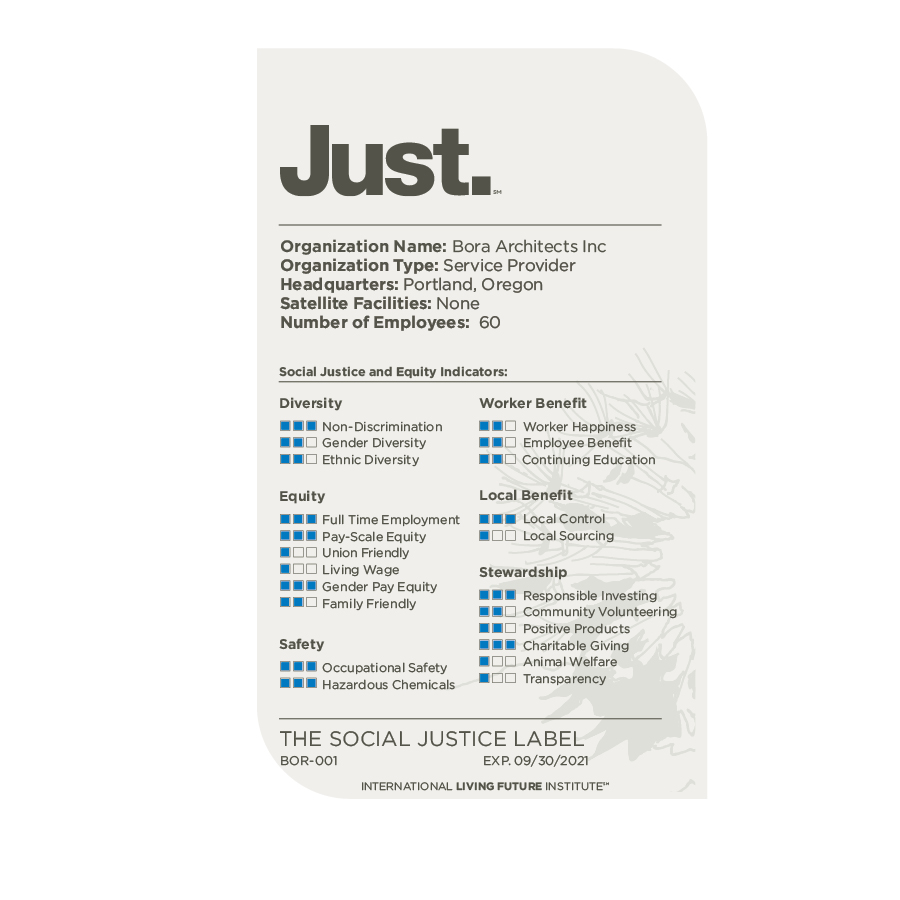
Pay Equity. Bora is committed to pay scale equity. Recognizing that there are merited differences in employee compensation within and between an organization’s levels of employees, we place an equitable limit on the compensation ratio between the lowest and highest paid employee at 1:5.
Employee Benefits. We offer a comprehensive package of healthcare benefits to all regular full-time employees, including medical, prescription drug, vision and dental coverage. We pay 100% of the healthcare plan premiums for employees and offer coverage for their dependents. All full-time and part-time employees are eligible to participate in Bora’s 401(k) plan.
Paid Family Leave Policy. Bora believes in building equity by retaining employees that may otherwise feel unable to return to work in the industry, or are concerned about taking the time they need to care for themselves or families. In 2015, Bora was the first architecture firm in Oregon to implement a paid family leave policy for our employees. Employees have access to 6 weeks of paid leave at up to 60% of their salary for maternity and paternity leave, to care for a sick child/parent/spouse, to bereave the loss of a family member, or to mend from a serious personal injury or illness.
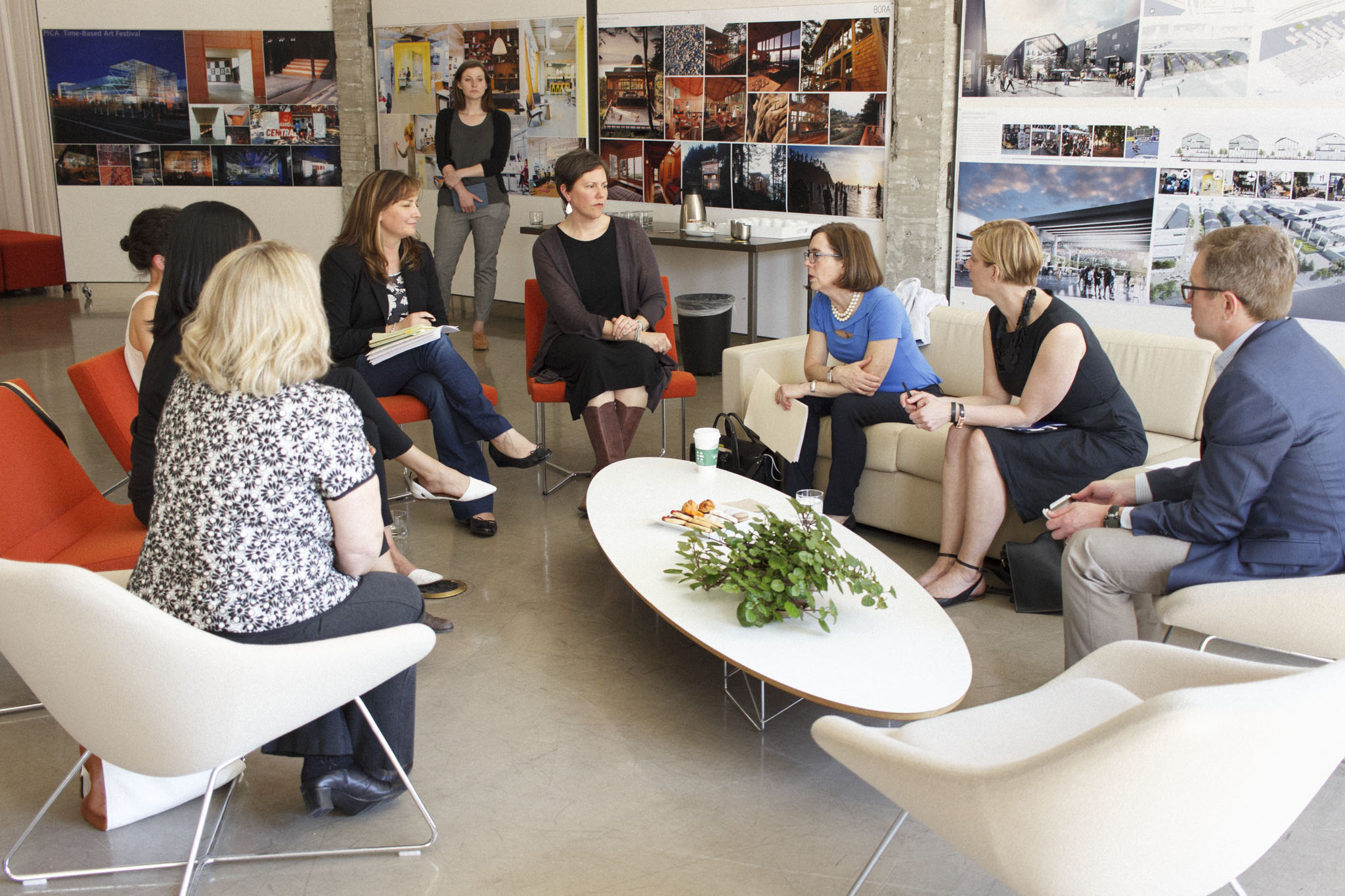
Visit Justice + Equity in Architecture commitments for ways we are advocating for equity in our industry.